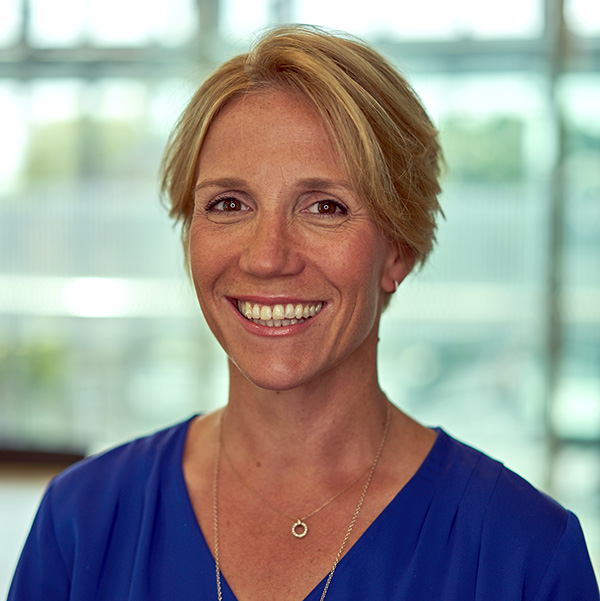Capital IdeasTM
Investment insights from Capital Group
Market Volatility
Russia’s invasion of Ukraine has intensified focus on geopolitical risks. However, investing amid geopolitical uncertainty is not new. Seasoned portfolio managers Kirstie Spence and Victor Kohn discuss how they approach geopolitical risk in emerging markets.
The Russia-Ukraine conflict has sharpened our focus on geopolitics. How do you approach geopolitical risk from an investment perspective?
Victor: When we make our investment decisions, we are constantly assessing the risk and reward trade-off across a range of issues. Geopolitics is one of those issues, and it is significant; it is not an isolated risk that applies only to places like Russia.
Sadly, there are many other territorial disputes around the world, for example the Turkish-Kurdish conflict, or Morocco and the Western Sahara. It is our role to stay informed of these situations and understand their broader implications.
Regime change is another aspect of geopolitical risk we follow closely. The impact of elections can have far-reaching consequences and are factored into our investment considerations. Changes of government can be especially meaningful in emerging markets like Brazil, but also in developed markets like the US.
A more extreme investment risk is the possibility of business discontinuity. This could come about due to the imposition of sanctions, which is a key variable that we monitor. Related to this risk is continuity of market access, particularly for foreign investors. These risks represent a significant threat as they could mean that parts of our portfolios become illiquid.
All these risks have come under greater focus because of the Russia-Ukraine conflict. However, we are constantly evaluating different geopolitical risks across countries as part of the investment process in emerging markets.
For example, China is the largest emerging market and for a long time a key consideration for investments in that market has been its dynamic with the US. Our monitoring covers the risks surrounding Chinese ADR1s and VIE2-structured companies, including the risk of sanctions from either side.
We look at a range of risks to determine the potential impact on our investments. Events can change the intensity of these risks, so it’s a matter of adjusting our analysis accordingly.
Kirstie: Investing in emerging markets often means investing in markets with very different political regimes and, in some cases, autocratic governments. Russia’s actions have highlighted some of the less frequently seen dangers of investing in countries with weak checks and balances on policymaking.
I would, however, describe Russia’s invasion of Ukraine as a black swan event rather than an ongoing risk. We understood there was a level of risk involved in investing in Russia from the outset, and the sizing of our exposure, relative to its very strong economic fundamentals, reflected these elevated levels, but we didn’t anticipate the scale of the invasion of Ukraine.
The immediacy and enormity of the events have brought increased scrutiny around autocratic behaviour and how it might be identified in the future. However, attempting to predict specific future events of this kind may result in an unbalanced analysis of the real issues facing economies.
The risks associated with emerging market investing are broad and complex. China is a case in point. Investing in China involves ongoing investment risks such as growth and development, as well as political and regulatory risk. There are also ESG issues like supply chain sustainability, environmental practices, and other social and governance factors. These risks are being constantly calibrated and factored into the investment decisions.
Geopolitical events flare up over the world at different points in time. But any single event shouldn’t overshadow the multitude of other relevant investment risks just because it dominates current news flow.
Given investing in emerging markets is inherently risky, what processes are in place to help mitigate these risks?
Victor: We have several teams feeding into our investment process to evaluate ongoing and potential risks.
The Emerging Markets Risk Working Group (EMRWG) is a key team in this process. The group monitors developments in emerging markets to address potential business risks associated with our investment portfolios. It is focused on areas such as market liquidity and access, and legal and regulatory risks including sanctions. It provides recommendations on risk processes, limits and frameworks to the Investment Policy Group (IPG), the primary body that evaluates risk controls and limits for our different portfolios.
The EMRWG is the consolidation of separate longstanding working groups focused on Russia and China, which came together under an expanded scope across emerging markets. This function was integral in assessing and monitoring the risk impact of Russia’s invasion of Crimea in 2014. At that time, sanctions were placed on some Russian securities, which applied to portfolios across fixed income and equities.
It’s notable that this group does not aim to address standard risks already embedded in our investment analysis, such as whether a bond priced at a specific level offers a good risk/reward trade-off. Instead, the questions posed are: what is the risk that we could see significant parts of the portfolio become illiquid? Is there a possibility we will not be able to access the foreign exchange markets? Or, could these markets be affected by other legal actions, such as sanctions, in the future? This helps us define areas of risk.
With respect to Russian securities, we had the precedent of sanctions when Crimea was annexed. The group has also provided oversight and guidance on our China exposure, where it is necessary to monitor risks from all angles. For example, we have identified risks surrounding VIE entities where there is potential for regulatory action from China's side. We also monitor ADRs to assess regulatory action from the US.
Mapping potential areas of concern helps us to identify whether further attention or action is needed. In some cases that can include constraining the exposure of portfolios to certain areas due to the risk of business discontinuity.
Kirstie: It is worth highlighting that the EMRWG draws on expertise from across Capital Group globally. It is not restricted to the equity and fixed income investment groups, and has representation from legal and global investment control. It can also draw on participants from other departments across Capital Group to address specific issues. This means it brings together different perspectives, skills and resources, enabling the group to step back and calibrate different factors.
The EMRWG operates in addition to our existing risk controls. These include scenario analysis and stress testing, which are coordinated for fixed income by the Risk and Quantitative Solutions Group (RQS). These controls worked effectively and were a key reason that, despite Russia’s strong fundamentals prior to the crisis, Capital Group did not have outsized positions in Russia or Ukraine.
Another facet of our analytical capabilities is Capital Group’s Night Watch team. This group conducts different scenario analyses of highly uncertain events where the economic and/or political consequences could severely disrupt markets. It does not attempt to predict one outcome over another, instead the intention is to provide a framework around how particular situations could evolve over time. This group met regularly over the COVID-19 pandemic and the global financial crisis and is providing regular updates on its Russia-Ukraine framework.
It’s the combination of these different perspectives that helps inform our investment decisions. We are able to put different scenarios and metrics into our risk analysis in order to make our investment judgements.
Your investment focus is on emerging markets, but what are some of the global implications from the Russia-Ukraine conflict?
Victor: This crisis should not be considered just an emerging markets issue. The freezing of Russian reserves by Western governments is unprecedented and has brought disruption to the global financial system. Most of the risks we have analysed are oriented around emerging markets but are viewed through a Western optic. Going forward, we will need much more holistic analysis.
The big global issue highlighted by the crisis is energy security. There is now much greater focus on the reliability of energy supply chains and access to key raw materials. From a country, industry and company level, the availability, diversity and accessibility of these inputs will come under much greater scrutiny.
Kirstie: From a fixed income perspective, the biggest investment impact has been the inflation pass-through globally. This was already taking place but has now been exacerbated, due to the impact on wheat/cereals and energy prices. We are now likely to see inflation higher for longer across the world including in emerging markets.
It’s still too early to say, but given the freezing of Russia’s central bank reserves as part of the sanctions package, another possible longer term impact could be on how we think about central bank reserves and the role they play, in terms of creditworthiness and debt sustainability. The potential for reserves to be frozen might serve as a deterrent to some countries against rogue action or it could be reflected in heightened risk premiums. It may also lead to some countries trying to diversify their central bank reserves. This is an area to watch as there could be significant implications for debt markets.
1. ADR: America Depositary Receipt. A security that represents shares of non-US companies.
2. VIE: Variable Interest Entity. A structure under which a Chinese company sets up an offshore entity for overseas listing purposes that allows foreign investors to buy into the stock.
Risk factors you should consider before investing:
- This material is not intended to provide investment advice or be considered a personal recommendation.
- The value of investments and income from them can go down as well as up and you may lose some or all of your initial investment.
- Past results are not a guide to future results.
- If the currency in which you invest strengthens against the currency in which the underlying investments of the fund are made, the value of your investment will decrease. Currency hedging seeks to limit this, but there is no guarantee that hedging will be totally successful.
- Depending on the strategy, risks may be associated with investing in fixed income, emerging markets and/or high-yield securities; emerging markets are volatile and may suffer from liquidity problems.
Our latest insights
-
-
European Equity
-
Economic Indicators
-
-
RELATED INSIGHTS
-
Portfolio Construction
-
-
Fixed Income
Past results are not predictive of results in future periods. It is not possible to invest directly in an index, which is unmanaged. The value of investments and income from them can go down as well as up and you may lose some or all of your initial investment. This information is not intended to provide investment, tax or other advice, or to be a solicitation to buy or sell any securities.
Statements attributed to an individual represent the opinions of that individual as of the date published and do not necessarily reflect the opinions of Capital Group or its affiliates. All information is as at the date indicated unless otherwise stated. Some information may have been obtained from third parties, and as such the reliability of that information is not guaranteed.
Capital Group manages equity assets through three investment groups. These groups make investment and proxy voting decisions independently. Fixed income investment professionals provide fixed income research and investment management across the Capital organisation; however, for securities with equity characteristics, they act solely on behalf of one of the three equity investment groups.
 Kirstie Spence
Kirstie Spence
 Victor Kohn
Victor Kohn